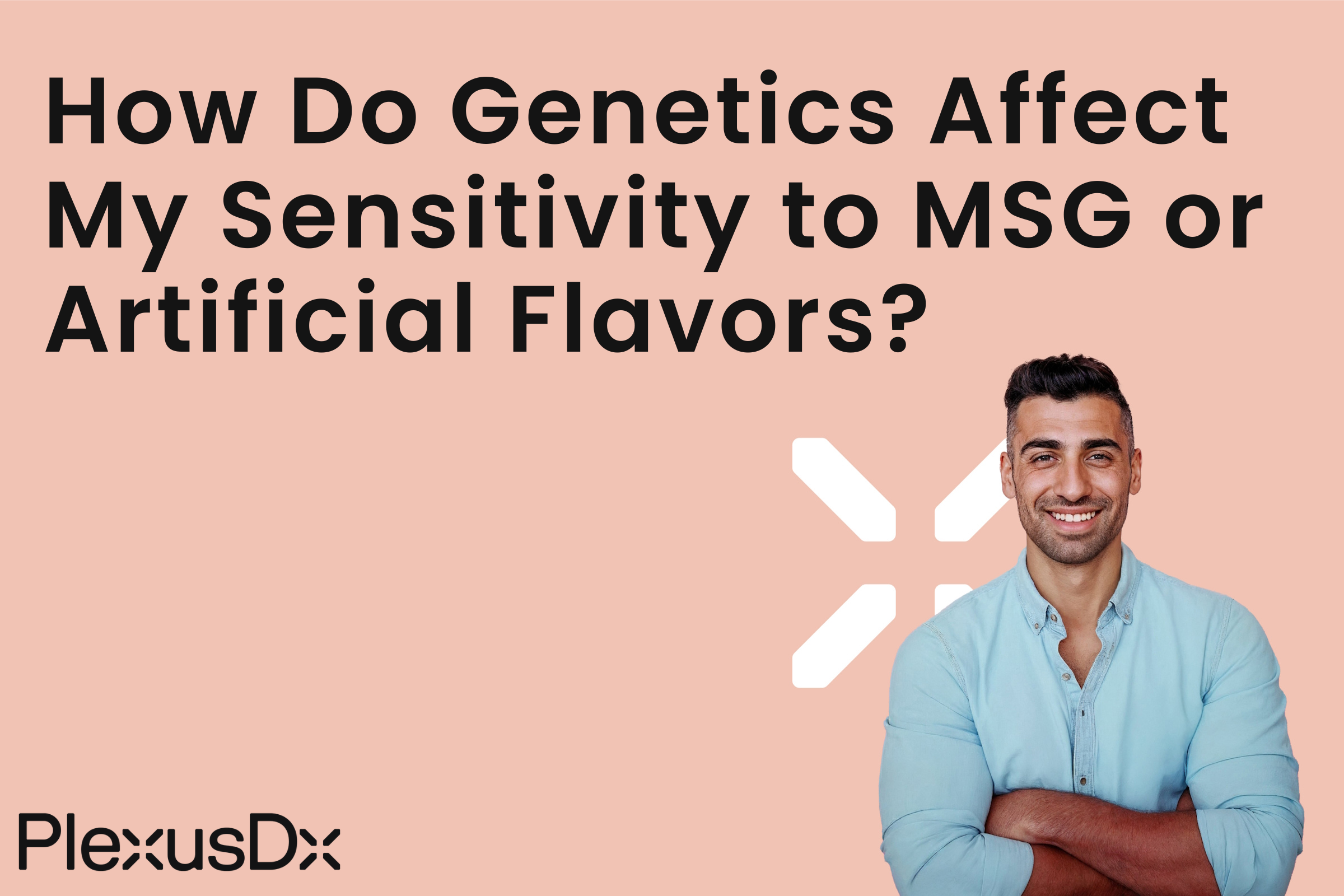Scientists investigate the genetic basis of individual reactions to MSG and artificial flavors
Why can certain people eat MSG-laden instant ramen without any problems, while others suffer headaches and nausea from just a few bites? The answer may lie in your genetics. Knowledge about genetic influences on MSG and artificial flavor sensitivities helps people choose their foods wisely. This article examines how genetics lead to food sensitivities with a focus on MSG and artificial flavorings.
The Genetic Connection to Food Sensitivity
The genetic structure of each person determines their body's reaction to substances such as MSG and artificial flavorings. Individual genetic differences increase the occurrence of negative reactions to substances. Genetic factors determine the body's capacity to process glutamate, which constitutes MSG's primary ingredient. Certain people develop increased sensitivity to glutamate because genetic differences affect how their bodies process this compound.
Research indicates that people's taste perception of different flavors depends on their genetic composition. Variations in genetic makeup cause differences in how individuals sense bitter and sweet flavors. Genetic makeup determines how we experience natural tastes and artificial flavors which simulate natural ones. Certain artificial flavors cause discomfort in individuals with defined genetic profiles.
Understanding MSG and Its Effects
MSG functions as a flavor enhancer but appears frequently in processed products as well as snack foods and dishes served in restaurants. According to the FDA MSG is safe for consumption although certain individuals report experiencing headaches along with flushing and sweating when they eat foods that contain MSG. The emergence of "Chinese Restaurant Syndrome" demonstrates how different individuals react to MSG consumption.
The process your body uses to manage glutamate metabolism varies based on your genetic makeup. Genetic mutations affecting the enzyme responsible for metabolizing glutamate lead to glutamate accumulation which triggers adverse bodily responses. Inherited genes determine whether you experience discomfort after consuming foods containing high levels of MSG.
Artificial Flavors: A Genetic Perspective
Your genetic makeup determines your body's sensitivity to artificial flavor substances. The food industry uses synthetic flavor compounds to imitate natural flavors throughout different food products. Consuming artificial additives elicits different reactions from people. Different genetic profiles affect how people metabolize artificial flavors which can trigger discomfort and allergic reactions in certain individuals.
Certain individuals experience increased sensitivity to particular chemicals present in artificial flavorings. People who display sensitivities to artificial flavorings face gastrointestinal problems and develop headaches or skin reactions. By understanding your genetic predisposition you can pinpoint which foods to remove from your diet to improve your dietary choices.
Practical Advice for Managing Sensitivity
Use this list of helpful dietary management tips if you think you experience a reaction to MSG or artificial flavors.
-
Keep a Food Diary
Begin your monitoring process by documenting both your meals and any symptoms you experience. Recording your dietary intake helps you pinpoint which foods in your diet cause your sensitivity symptoms. -
Read Labels Carefully
Become a label detective! Identify MSG and artificial flavorings by thoroughly examining product ingredient labels. Understand food additive terms by learning about substances like hydrolyzed vegetable protein and natural flavoring. -
Opt for Whole Foods
Whenever possible, choose whole, unprocessed foods. Food items like fresh produce and whole grains combined with lean proteins usually contain less additives that may lead to sensitivity issues. -
Experiment with Natural Flavor Enhancers
Maximize your food's flavor potential by choosing natural herbs and spices instead of MSG and artificial flavorings. Using garlic, onion and fresh herbs together produces intense flavors without causing negative health effects. -
Consult with a Healthcare Provider
Schedule a meeting with your healthcare provider to review your symptoms and dietary issues. Experts in genetics help you by identifying your genetic predispositions and guiding you toward better nutritional decisions.
Conclusion
Studying genetic influences on MSG and artificial flavor sensitivities enables significant dietary management enhancements. Understanding genetic influences on food sensitivity allows you to use preventive measures that both prevent discomfort and promote wellness. The Precision Health & Wellness tests available through PlexusDx show the connection between genetic makeup and health. PlexusDx Precision Health & Wellness tests are available for purchase through their official site PlexusDx.com as well as Amazon and Walmart. Knowledge of your genetic makeup delivers distinctive health information which guides your dietary and wellness choices.
Where to Buy PlexusDx Genetic Tests
Ready to take control of your health with precision genetic insights? You can purchase the PlexusDx Food Sensitivity and Allergy Genetic Test from these trusted retailers:
- 👉 PlexusDx – Order directly from our official website.
- 👉 Amazon – Convenient shopping with fast shipping.
- 👉 Walmart – Buy online from a trusted retailer.
Get your personalized DNA insights today and start optimizing your health! 🚀

Share:
Why Do I Get Distracted So Easily—Is It Genetic?
How Do Genetics Affect My Body’s Response to Birth Control?